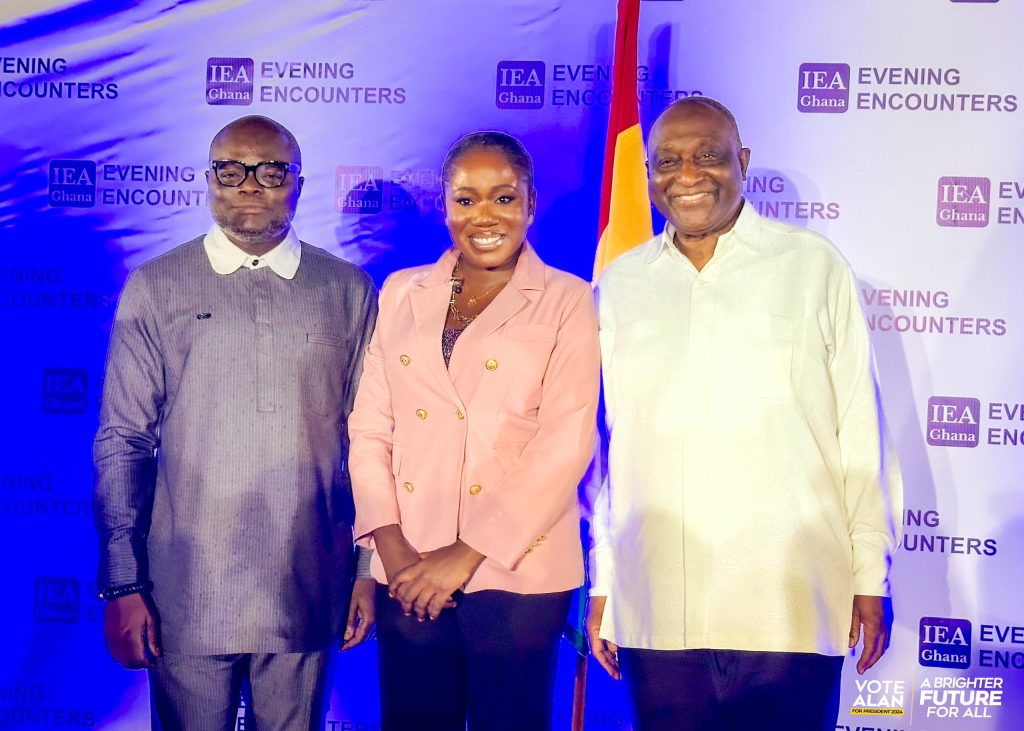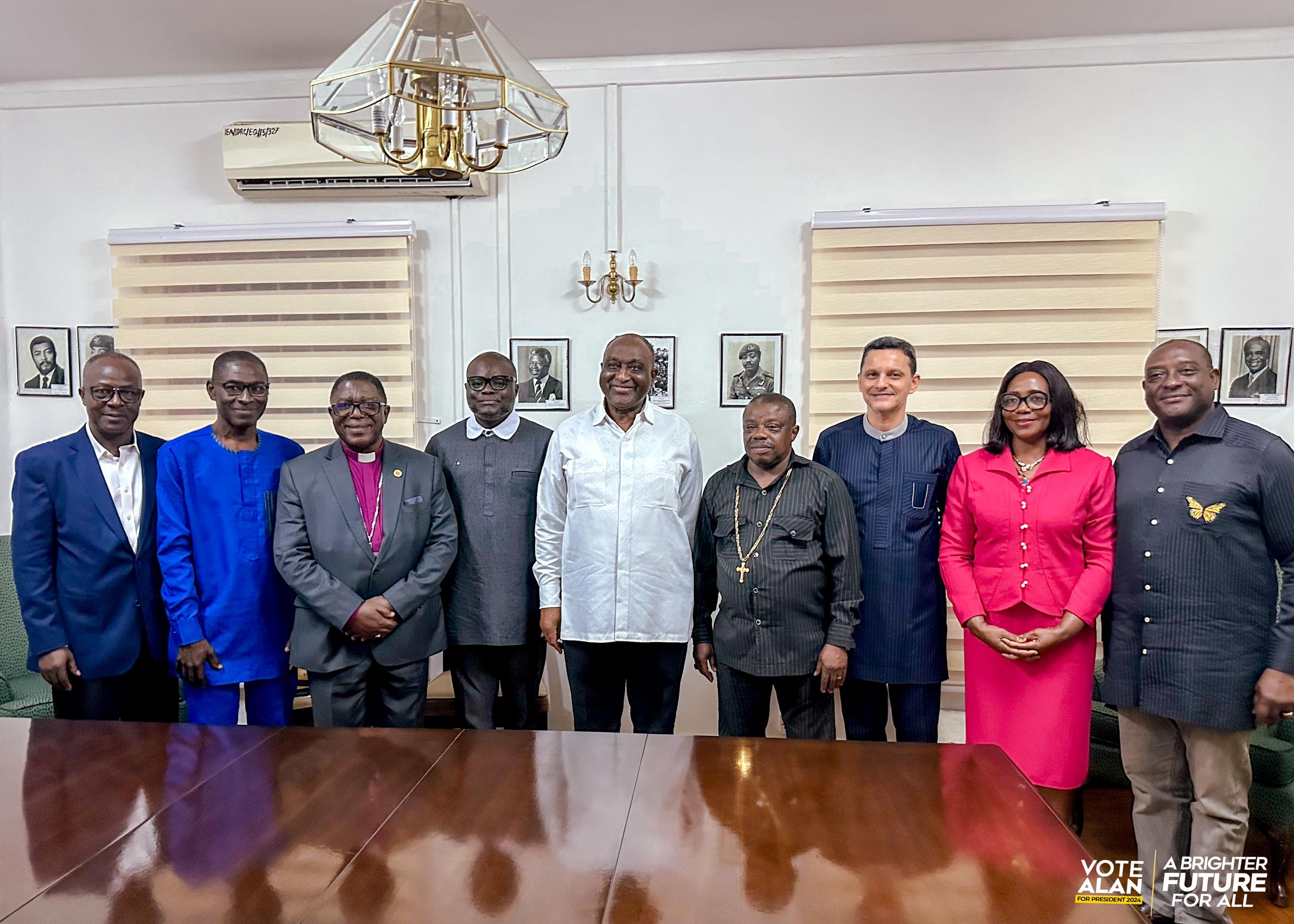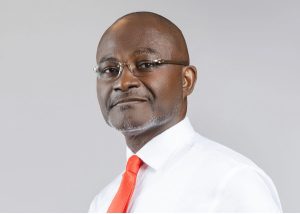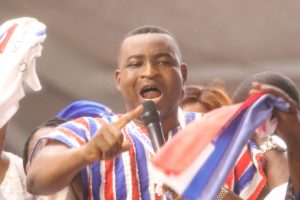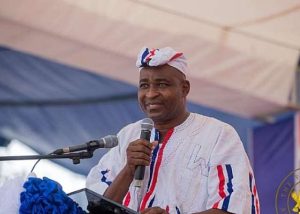Written By: Qwofi Manuel
Alan John Kwadwo Kyerematen, a presidential candidate in the December 2024 General Elections, presented a bold and transformative vision for Ghana during the Institute of Economic Affairs (IEA) Evening Encounter on October 1st. His speech, centered around his “Great Transformational Plan” (GTP), set the stage for what he described as a new era of leadership for the country.
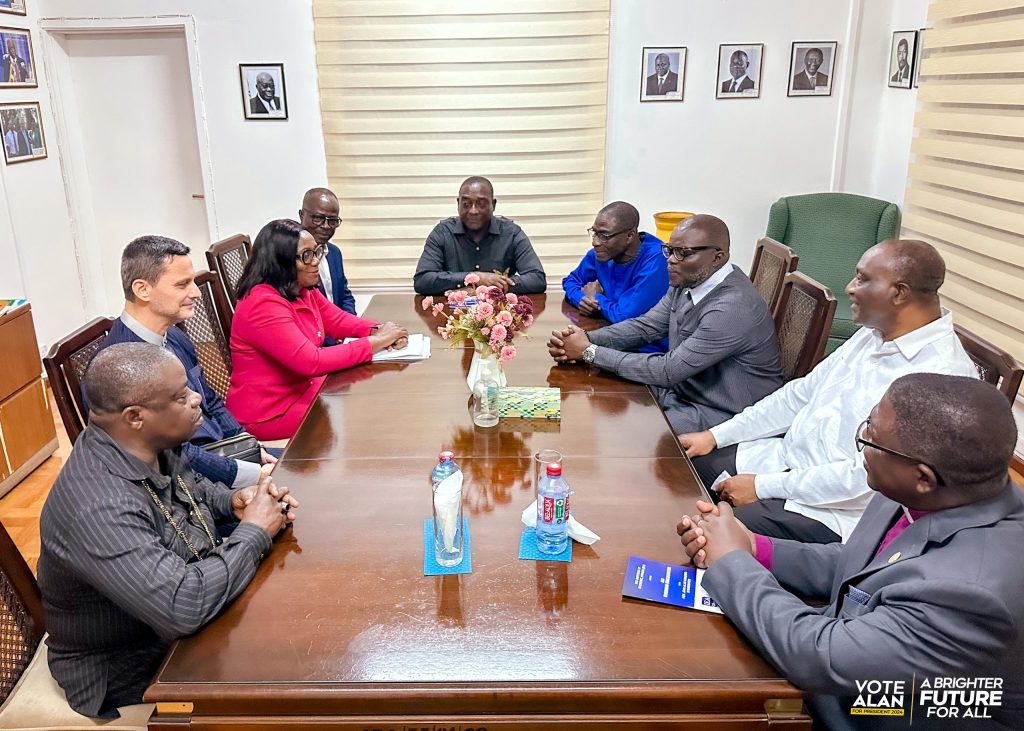
In his opening remarks, Kyerematen commended the IEA for organizing the encounter, which allowed presidential candidates to engage directly with key stakeholders. He stressed that the nation stood at a pivotal moment, with a staggering 70-80% of Ghanaians indicating a lack of interest in voting in the upcoming elections due to dissatisfaction with the dominant political parties—the New Patriotic Party (NPP) and the National Democratic Congress (NDC).
Kyerematen’s critique was sharp: “The two dominant parties, NPP and NDC, after 32 years in power, have failed the country for a number of reasons,” he asserted. Among the reasons he listed were Ghana’s ongoing economic crisis, the high rate of unemployment, persistent energy supply issues (commonly known as Dumsor), and rampant corruption.
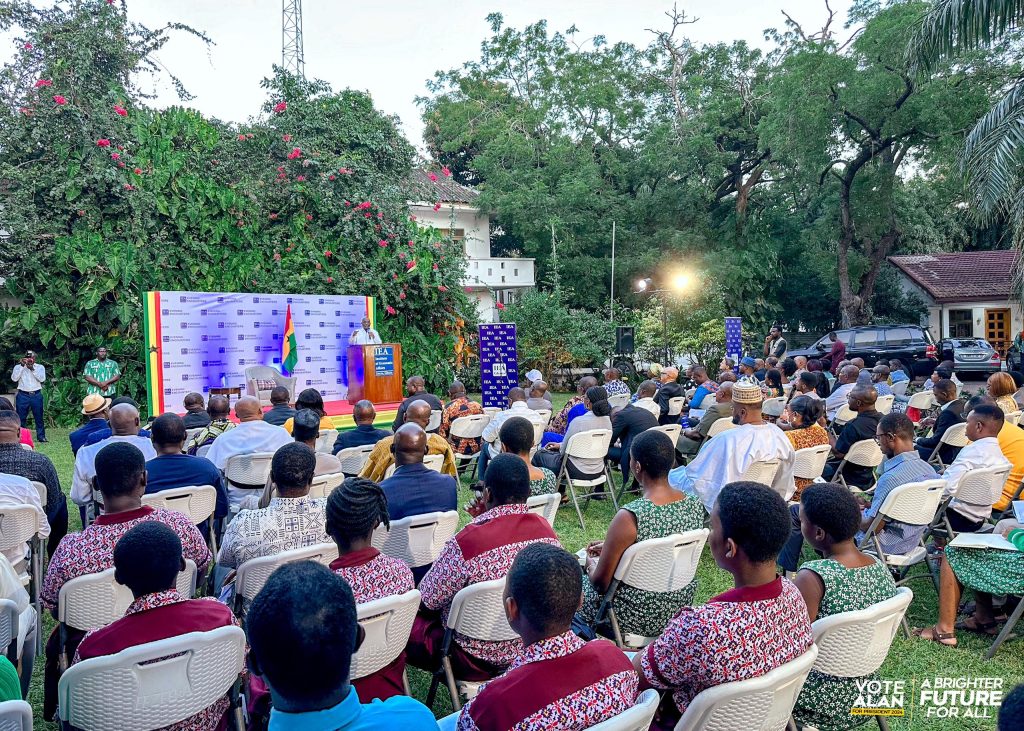
He also criticized the country’s polarized political landscape, highlighting how every issue is politicized, and lamented the “winner-takes-all” syndrome, where parties in power reserve the spoils of office for their loyalists. According to Kyerematen, this system has hindered national progress and unity, which is why many Ghanaians are disillusioned with the current political order.
Kyerematen’s speech introduced the Great Transformational Plan (GTP), his comprehensive policy framework aimed at addressing Ghana’s systemic issues and ushering in a new era of inclusive governance and economic prosperity.
The GTP is divided into six key clusters:
- Economic Transformation
Kyerematen proposed a series of macroeconomic reforms, including controlling public expenditure, stabilizing the currency, reducing inflation, and lowering taxes and interest rates. He placed special emphasis on debt sustainability and increasing financial support for small and medium-sized enterprises (SMEs), promoting financial inclusion, and improving labor productivity. Furthermore, he outlined a new regime for cocoa financing and the promotion of tourism as a significant growth sector. - Governance Reform
The GTP promises sweeping reforms in governance, including zero tolerance for corruption. Kyerematen plans to introduce new legislation and strengthen the enforcement of existing anti-corruption laws. Notably, he proposed the creation of an “anti-corruption Czar” with prosecutorial powers independent of the Attorney General’s office. He also emphasized constitutional reforms to improve local government administration and deepen decentralization. - Infrastructure Development
Kyerematen called for a paradigm shift in infrastructure development, including the mainstreaming of digitization across public institutions. His government would create 100,000 satellite internet hotspots across the country. In the energy sector, he pledged to accelerate the transition to renewable energy, including solar, wind, and hydrogen, and involve the private sector in energy generation and distribution. - Social Services
A major focus of the GTP is improving the Free Senior High School (SHS) program. Kyerematen acknowledged the financial and infrastructure challenges facing the initiative and proposed a comprehensive review to ensure its sustainability. In healthcare, he highlighted a plan to introduce 100,000 health screening booths across Ghana for early detection of lifestyle diseases, managed by young graduates under a “work and pay” scheme. - Natural Resource Management
On the issue of illegal mining (Galamsey), Kyerematen presented a 10-point plan that includes a one-year ban on small-scale community mining, both legal and illegal, and the restoration of water bodies through reforestation. He also called for stricter regulations, including life imprisonment for anyone found mining in river bodies and forest reserves. - Attitudinal and Mindset Change
The final cluster in the GTP emphasized the need for a national shift in attitude and values, promoting law and order, discipline, meritocracy, and patriotism. Kyerematen argued that these principles were the foundation of all successful democracies and economies, and vital for Ghana’s transformation.
Kyerematen concluded his speech with a rallying call to Ghanaians, urging them to break free from the traditional two-party system that has dominated Ghanaian politics. He encouraged citizens to embrace his Movement for Change and assured them that voting for him would not be a wasted vote.
“My advice to the people of Ghana is that if you vote for Alan and everybody looking for change also votes for Alan, then automatically Alan will win. And change will come,” he stated confidently.
Kyerematen highlighted his extensive track record in both the public and private sectors, referencing his recognition by Time International Magazine in 1994 as one of the 100 Most Influential Global Leaders. He also mentioned his role in the establishment of the African Continental Free Trade Area (AfCFTA) and his contributions to making Ghana its headquarters.
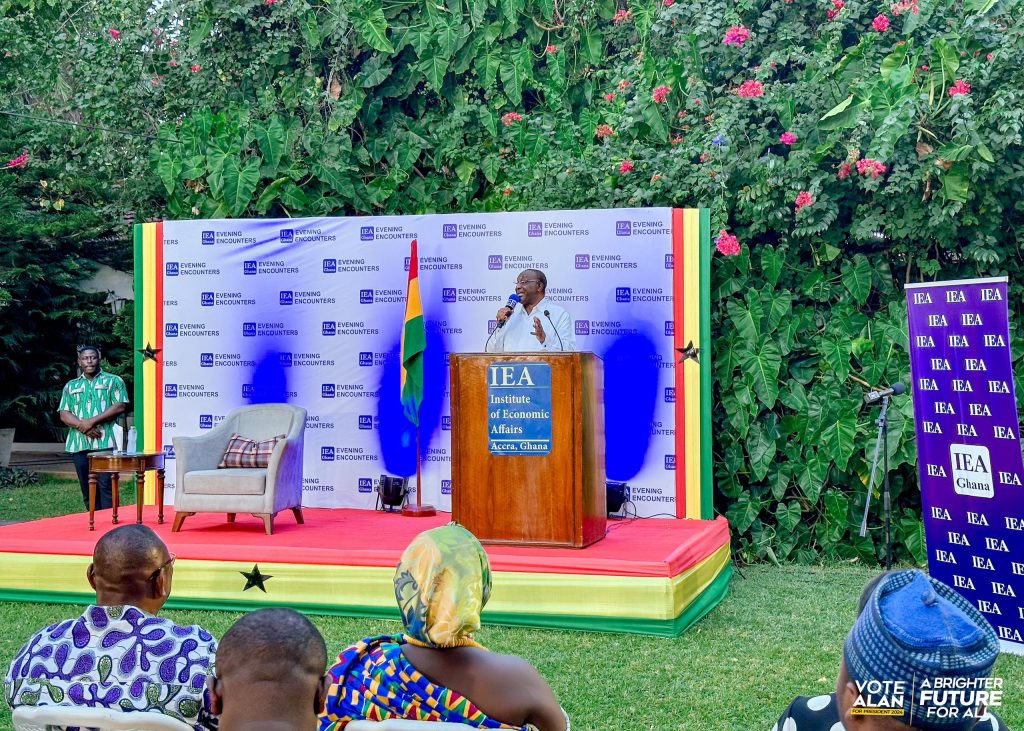
In a direct challenge to his political opponents, Kyerematen stressed that Ghana must move beyond manifesto promises and develop a long-term National Development Plan. He argued that the cyclical nature of manifesto-driven governance had led to discontinuity in national projects and policies, preventing sustained progress.
The speech resonated with many, particularly those disillusioned by the traditional parties, as it touched on both the failures of the current system and offered a comprehensive vision for Ghana’s future.
Alan Kyerematen’s IEA Evening Encounter was a defining moment in the 2024 electoral campaign. His Great Transformational Plan aims to overhaul Ghana’s economic, political, and social systems, with an emphasis on inclusion, accountability, and sustainable development. Whether his bold proposals will sway the electorate in December remains to be seen, but his message was clear: Ghana needs change, and he is ready to lead that transformation.
